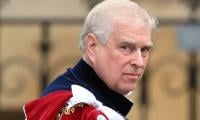Young Moldovans fight corruption as election nears
CHISINAU: For Andrei Trupceac, the breaking point came when courts in his native Moldova overturned the results of a local election that had been won by an opposition candidate.
"That day I understood that justice doesn't work here," said the 30-year-old, one of thousands of people who protested the decision last summer in the Moldovan capital Chisinau. Trupceac is now part of a wave of young Moldovans, in the country and abroad, campaigning against corruption ahead of a general election on Sunday.
A week before the vote, he handed out anti-corruption leaflets in the small town of Orhei, north of Chisinau in this poor ex-Soviet republic wedged between Romania and Ukraine. Last year the country ranked 117 out of 180 nations in Transparency International's Corruption Perceptions Index. The NGO warned the government was putting pressure on activists.
The World Bank meanwhile said in a recent report that Moldova was "captured by oligarchic interests". "Successive governments promised to combat corruption and transform the judiciary... but little has changed on the ground", it noted.
Some in the country's large diaspora have decided to come back from work or study abroad to protest corruption before the election. Among them are Alex Mihailenco, a 33-year-old who works as a start-up developer in London and is behind a movement called "Free Moldova".
"Sunday's legislative elections are an opportunity to try to heal the country," he told AFP in Chisinau.
"Moldovans have got used to daily corruption, they think it's the same in all countries, but it's not true," he added. "Free Moldova" uses online donations to print informational leaflets and posters, he said.
Maria, a 27-year-old who declined to give her last name, had also temporarily returned to Moldova from Britain for the vote. She welcomed the birth of civil society in her home country, though many compatriots did not understand the need for such a movement.
"It's something new which has nothing to do with our Soviet heritage," Maria said. The pair are among almost 800,000 Moldovans, of a population of 3.5 million, who work abroad and send money to their families back at home.
These transfers -- estimated last year to total around $1.2 billion -- are the equivalent of 20 percent of Moldova's gross domestic product (GDP), according to the World Bank. Sunday's election is shaping up to be a three-way race between the pro-Russian Socialist party of President Igor Dodon, the ruling Democratic party, and a pro-European alliance.
-
 Demi Lovato Leaves Fans Disappointed With Unexpected Announcement
Demi Lovato Leaves Fans Disappointed With Unexpected Announcement -
 Pacers Vs Knicks Overtime Thriller Ends In Heartbreak For New York
Pacers Vs Knicks Overtime Thriller Ends In Heartbreak For New York -
 Who Owns The Ambassador Bridge? New Report Links Owner Matthew Moroun To Trump’s Threat
Who Owns The Ambassador Bridge? New Report Links Owner Matthew Moroun To Trump’s Threat -
 ICE Detention Center Plan Sparks Controversy In Maryland As Lawmakers Push Back
ICE Detention Center Plan Sparks Controversy In Maryland As Lawmakers Push Back -
 Blood Pressure Medication Recalled After Wrong Tablets Found In Bottles
Blood Pressure Medication Recalled After Wrong Tablets Found In Bottles -
 Why Ariana Grande Wants A 'tiny Mouse' To Play Her In Biopic?
Why Ariana Grande Wants A 'tiny Mouse' To Play Her In Biopic? -
 Wind Chill Returns With Brutal Cold As Polar Vortex Stalls Over Canada
Wind Chill Returns With Brutal Cold As Polar Vortex Stalls Over Canada -
 Princess Beatrice, Eugenie ‘do Not Want To Be Seen In Public’ Because Of Dad
Princess Beatrice, Eugenie ‘do Not Want To Be Seen In Public’ Because Of Dad -
 Costco $20 Rule Explained As Employee Pay Climbs Across North America
Costco $20 Rule Explained As Employee Pay Climbs Across North America -
 Strange Incident Happened At Nancy Guthrie's Home On Abduction's 10th Day
Strange Incident Happened At Nancy Guthrie's Home On Abduction's 10th Day -
 Tumbler Ridge School Lockdown Underway As RCMP Investigate School Shooting
Tumbler Ridge School Lockdown Underway As RCMP Investigate School Shooting -
 Royal Family Knows There Can Be ‘no More Glossing’ Of Andrew Downfall
Royal Family Knows There Can Be ‘no More Glossing’ Of Andrew Downfall -
 Britney Spears Quietly Parts Ways With Her Music Catalog: Report
Britney Spears Quietly Parts Ways With Her Music Catalog: Report -
 Princess Diana Bodyguard Suspected ‘she Could Die’: Here’s How
Princess Diana Bodyguard Suspected ‘she Could Die’: Here’s How -
 Teddi Mellencamp Marks Huge Milestone With Emotional Message Amid Cancer
Teddi Mellencamp Marks Huge Milestone With Emotional Message Amid Cancer -
 Shamed Andrew To ‘kiss And Tell’ After Dip In Popularity
Shamed Andrew To ‘kiss And Tell’ After Dip In Popularity



